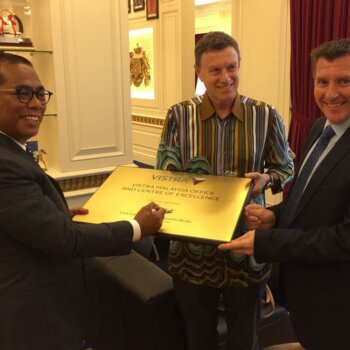(Women on Top in Tech is a series about Women Founders, CEOs, and Leaders in technology. It aims to amplify and bring to the fore diversity in leadership in technology.)
Here is our interview with Robyn Ward, a 20-year veteran of the technology startup space. Via her coaching and consulting business, FounderForward, she helps founders with leadership development, culture & team-building, as well as a fundraising strategy and strategic partnerships. Robyn also teaches Entrepreneurship at USC and is a champion of diversity and equality in the technology industry.
What makes you do what you do?
I love people and I love entrepreneurship. Running a coaching and advisory business allows me to combine both of these in a way that is immensely rewarding. There is no better feeling than the one I get upon receiving a thank you letter from a client telling me I have changed their life and their business in ways they could not imagine.
How did you rise in the industry you are in?
I got to where I am today through a combination of hustle and execution, along with a deep focus on networking and relationship building.
In startups you have to excel at getting a lot done with very little resources. In my early days, I developed a reputation as the “get shit done” girl.
In addition, as a people lover, I am a natural connector and community-builder. And the startup industry is very much about community. I derive great satisfaction from connecting people to co-create opportunities.
Why did you take on this role/start this startup?
Having been in the tech startup space for 20 years – on both the operating and investing sides of the table – I found myself constantly frustrated by the fact that the product is almost always put before people. Yet, most of the time, it is bad management, bad leadership, and bad culture that kills startups. So I decided to start my business, FounderForward, to focus on helping founders and startups avoid these issues and take themselves and their businesses to the next level.
Do you have a mentor that you look up to in your industries or did you look for one or how did that work?
Currently, I do not have a mentor, but I have had them in the past. Mentorship, and sponsorship within one’s workplace, is key to success – especially for women.
How did you make a match if you did, and how did you end up being mentored by him?
I have sought out folks I looked up to for mentorship and reached out to them for a coffee to build a relationship that would lead to mentorship.
In terms of sponsorship, I have always worked in a very male dominated fields. I was fortunate that the two men I worked for wanted to sponsor me. I did not ask. But I am a big believer in asking. If you don’t ask, the answer will always be no. I encourage everyone to find a mentor and a sponsor and to ask for their help and guidance.
Now as a leader how do you spot, develop, keep, grow and support your talent?
I am a big believer that the top job of a manager is to develop and grow talent. This means building real relationships with your employees and talk with them often about their goals. It also means trusting them with projects that challenge them and require them to grow and stretch. In addition, it means both giving and asking for honest feedback on performance. Never forget the power of asking questions – even simple ones, like “how can I best support you to help you reach goals?”
Do you consciously or unconsciously support diversity and why?
I consciously support diversity and inclusion in all industries, and am pro-actively involved in promoting change within the tech industry. Last fall, I co-hosted a Los Angeles Tech Town Hall on Diversity and Inclusion (with Emily Best of Seed&Spark), which featured leading activist and investor Freada Kapor Klein.
I also dedicate a great deal of time of helping female founders. I am on the Board of the Women Founders Network, which hosts the biggest pitch contest for women founders in Southern California. I am also an Advisor to Brava Investments, which focuses on investing in businesses that disproportionately benefit women.
Lastly, as I am coaching founders, I am also coaching them on the importance of diverse teams and inclusive cultures. Not only because it is a good thing to do, but because it is good for business – meaning the bottom line.
What is your take on what it takes to be a great leader in your industry and as a general rule of thumb?
A great leader must have emotional intelligence. Building companies doesn’t happen without hiring great people and building great teams. It is hard to do either of these without a high EQ. In fact, I believe EQ > IQ. When investing, I assume founders that have gotten as far as a meeting with me have already pre-screened for IQ. Most of my questions are geared towards understanding how emotionally stable, adaptable, empathetic, and inspiring a founder is. These are all elements of emotional intelligence.
Emotional Intelligence is also something I work on with all my coaching clients. The good news is that emotional fitness can be improved upon – much like physical fitness. It just takes consistent and conscious effort, which is why having a coach helps.
Advice for others?
I deeply believe entrepreneurship has no zip code. In 2018, I am focused on bringing FounderForward’s content and curriculum online – where it can benefit entrepreneurs around the globe and not just LA and SF. Sign up for our newsletter via FounderForward.co to keep updated on these efforts.
If you’d like to get in touch with Robyn Ward, please feel free to reach out to her on LinkedIn: https://www.linkedin.com/in/robynmward/




























